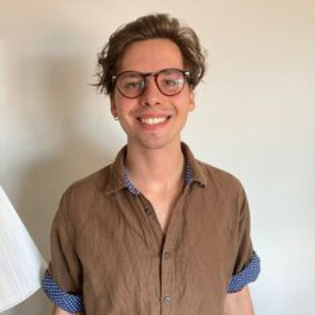MA Comparative Literature and Critical Theories student Fernando Castellano-Banuls says that the course created “a space in which everyone could learn from one another”. We found out about his experience studying at the University of Birmingham.

Why did you choose MA Comparative Literature and Critical Theories at the University of Birmingham?
“I was looking for a MA that could potentially prepare me for a career in academia, but that was also flexible in terms of areas of study. I did not want to study any particular area of knowledge, but rather have an overview of different kinds as well as the tools to approach any of them. This MA at the University of Birmingham offered the theoretical tools to successfully study different areas of humanities, as well as the space to lead my research on my desired areas of interest. For example, we could be reading Lacan, Butler and Foucault, but then I could be writing my essays about Spanish Science Fiction.”
What has been the highlight of your course?
“It is very flexible – I could write my essays about anything that I wanted, and I received particular, specific advice from lectures that really helped me achieve my academic goals. I had a chance to write about a huge range of topics that I was interested in, and the lecturers always supported my choices and provided excellent feedback to improve my research. In that sense, support from staff is impeccable.
“On that note, it also surprised me to have weekly meetings with staff to talk about our professional futures, how our Masters course was going or anything that we wanted. I had a lot of support from lecturers – we talked about academia, presenting at conferences, improving our writing, referencing and job applications. We could also bring our own topics and questions if we wanted. These meetings were incredibly helpful, and were especially needed in these complicated times.”
What have you learnt from your programme?
“I have learnt how to navigate academia – write abstracts, papers, research proposals and conference communications. These are all very useful to pursue a career in academia. I’ve also have the chance to read a huge range of theoretical texts that provided me with a basis to approach literature at an academic level.
“I have also significantly improved my academic writing, not only from the fantastic feedback that I received from lecturers, but also from university services such as the Academic Writing Advisory Service (AWAS).”
What is life like as a student at the University of Birmingham?
“My year has been no doubt a complicated one as all of my course has been online. I haven’t met my classmates face-to-face nor been to campus. However, the organisation of the module has been clockwork. I had support 24/7 from staff and lecturers. We never had an organisation problem, and the university really did its best to provide students with some bits of student life. There were loads of online events that I really enjoyed and from which I learnt a lot.
“I have greatly enjoyed my life as a student at the University of Birmingham. I have managed to make online friends, attended online events and benefited from the resources the university had to offer.”
How has your course and your time studying at Birmingham prepared you for your future career?
“Firstly, it has provided me with the practical and theoretical skills to navigate academia and find my place in such a competitive environment. I feel much more confident now after studying this course to pursue a career in academia.
“This course has also put me in contact with people (students, academics, lecturers) that have helped me significantly throughout my path and from which I have learnt a lot. The course managed to create a space in which everyone could learn from one another, and I believe that has been very beneficial for each other.
“I have done a lot of writing, and also some presentations, thus significantly improving my written and oral communication ability. This is a fantastic skill in any workplace, but is nonetheless essential for a job in academia.
“Finally, I have acquired strong critical thinking skills. At the beginning of the course we were asked to approach a lot of theories and books that are not easy to read. We were supposed to respond to these theories and engage with them, which I found very complicated. After a lot of reading, writing and talking with lecturers, I feel that I can approach theoretical writing with a critical mind, respond to it and use it on my research.“